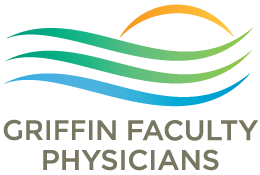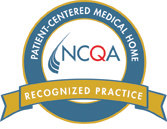
The High-Risk Breast Center Clinic at The Hewitt Center for Breast Wellness at Griffin Hospital offers peace of mind for individuals at an increased risk for breast cancer, compassionately helping them understand their chances for developing cancer, and providing them with an individualized cancer screening schedule and preventive treatment options.
What is hereditary breast cancer?
Cancer is usually caused by harmful changes, known as mutations, in a person’s genes (some are caused by other types of mutations not in genes). Many mutations happen by chance and others are thought to be caused by lifestyle and environmental factors. Other mutations, however, are passed down through our family and can be related to hereditary cancer. People at risk for hereditary breast cancer may develop more than one cancer and their breast cancer often happens at an earlier than average age.
Why is hereditary breast cancer testing important?
If you have a family history of cancer, hereditary cancer testing may help guide your cancer prevention and screening strategies or may be a key component of your risk assessment. This information helps you and your care team make informed healthcare decisions. People with familial or hereditary cancer risk have a higher chance of developing breast cancer during their lifetime. Knowing if you are at higher risk for breast cancer empowers you to make lifesaving medical management decisions. You and your care team can create a personalized plan to reduce your risk of developing cancer, or increase the likelihood of finding cancer at an earlier and more treatable stage.
Knowing the red flags for hereditary breast cancer
If you can answer yes to any of the questions below, you may be a good candidate for hereditary cancer testing:
- At any age, you have a personal history of: Breast Cancer, Ovarian Cancer, Prostate Cancer, Pancreatic Cancer, Colorectal, Endometrial or Uterine cancer.
- You have a family history of:
- Breast cancer at age 50 or younger
- Ovarian cancer or male breast cancer at any age
- Ashkenazi Jewish ancestry AND have a relative diagnosed with breast cancer
- A first-degree relative with pancreatic, colon, rectal, or endometrial cancer at age 49 or younger
- A gene mutation found in a family member
Understanding your family history for breast cancer risk
Determining your risk for hereditary breast cancer starts with knowing your personal and family history, including:
- The history of cancer on your mom and dad’s side of the family
- The cancer history of at least three generations your family (parents, children, siblings, grandparents, aunts, uncles, nieces, nephews, and other close blood relatives)
- Details such as the type of cancer and what age your relatives was when they were diagnosed
Making a plan that’s right for you
Once your risk for hereditary breast cancer is determined, you and your care team will make a personalized prevention or treatment plan that may include:
- Extra surveillance to find cancer at an earlier and more treatable stage
- Risk-reducing medications to lower the risk for certain cancers
- Risk-reducing surgery, based on your unique situation, to greatly lower your risk
- Cancer treatment options determined through genetic testing
Getting started with genetic counseling
If you have any of the red flags for hereditary cancer, call the High-Risk Breast Cancer Clinic at The Hewitt Center for Breast Wellness at 203-732-7233 for an appointment.
A full history and risk assessment will be performed. If you meet criteria for genetic testing, a sample can be collected for analysis. When the results are available, you will review them with a provider and create an individualized plan for cancer screening.
Breast Surgery at Griffin Health
Hewitt Center for Breast Wellness Medical Director and Breast Surgeon Dr. Denise Barajas and Breast Wellness Nurse Practitioner Angelina Silva offer patients expert care in a wide range of surgical treatments and diagnostic procedures through Griffin Faculty Physicians Breast Surgery. Our person-centered focus ensures personalized and high-quality care that makes the patients’ needs our top priority.
Patients receive an initial consult with Angelina at the Griffin Faculty Physicians Breast Surgery office at 2 Ivy Brook Road, Shelton Tuesday-Thursday or at 350 Seymour Ave., Suite 101, Derby on Fridays.
For more information about breast cancer surgery, visit www.griffinhealth.org/treatments/breast-surgery.
For more information about Griffin Faculty Physicians General Surgery, visit https://gfp.griffinhealth.org/index.php/specialty-care/general-surgery.

